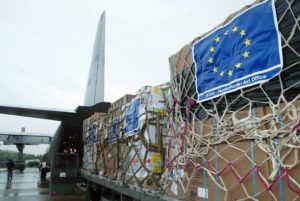World Humanitarian Day was commemorated on 19 August. The EU and its Member States are among the main humanitarian donors. Together they provide aid worth billions of euros each year. This supports people affected by man-made natural disasters such as armed conflicts, droughts, earthquakes, tsunamis or hurricanes.
The EU and its Member States are among the main humanitarian donors. 7 billion in humanitarian aid, specifically 2.4 billion from the EU budget and 4.6 billion in the form of national humanitarian aid from Member States.
What is humanitarian aid?
Humanitarian aid consists primarily of providing material and logistical support to people affected by natural or man-made disasters, such as armed conflicts, wars, droughts, earthquakes, tsunamis or hurricanes.
Among those in need of humanitarian aid:
- populations suffering from malnutrition or famine
- refugees and internally displaced persons
- victims of armed conflicts and other forms of physical or psychological violence
- people whose homes or livelihoods have been destroyed.
Humanitarian aid encompasses a range of relief activities, including the provision of food aid and nutritional support, shelter, health care, water and sanitation, protection from physical and psychological damage, in particular sexual and gender-based violence, education in emergencies, cash assistance…
Emergency humanitarian aid should not be confused with development cooperation, which aims to support the long-term economic, environmental, social and political development of developing countries.
What are the EU and the Member States doing?
Humanitarian aid is a shared competence between the EU and the Member States, as laid down in Article 4(4) of the Treaty on the Functioning of the European Union. Each Member State decides what funding it wants to provide in response to a particular crisis, to which humanitarian organisation or to which fund.
More information
Access the full news







Leave a Reply